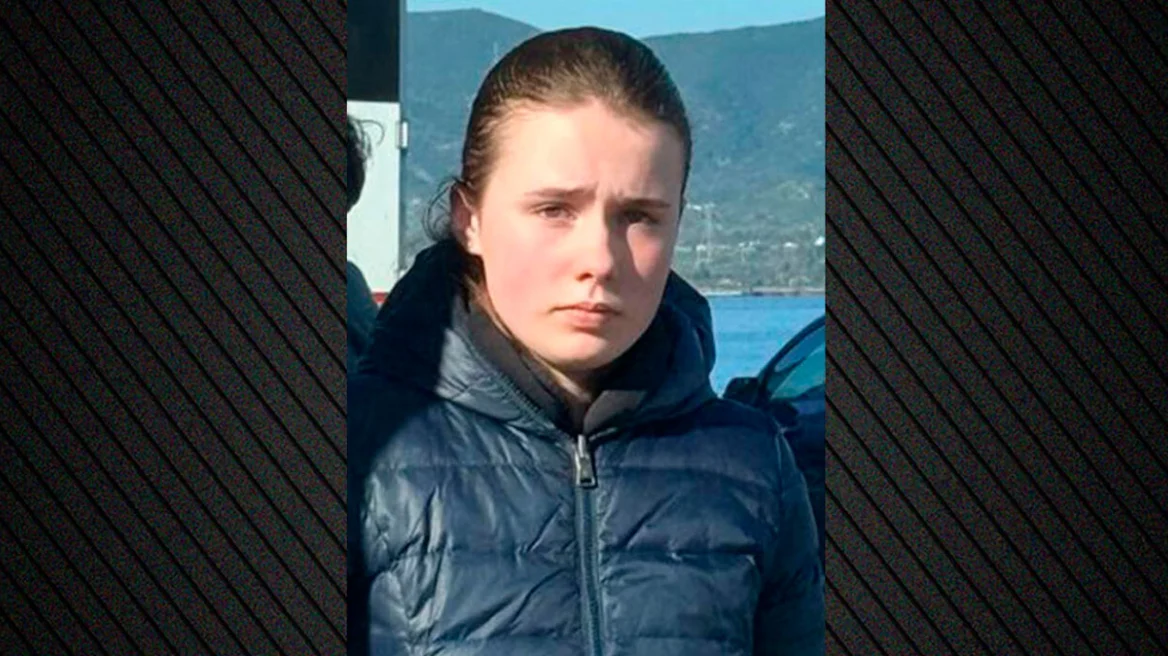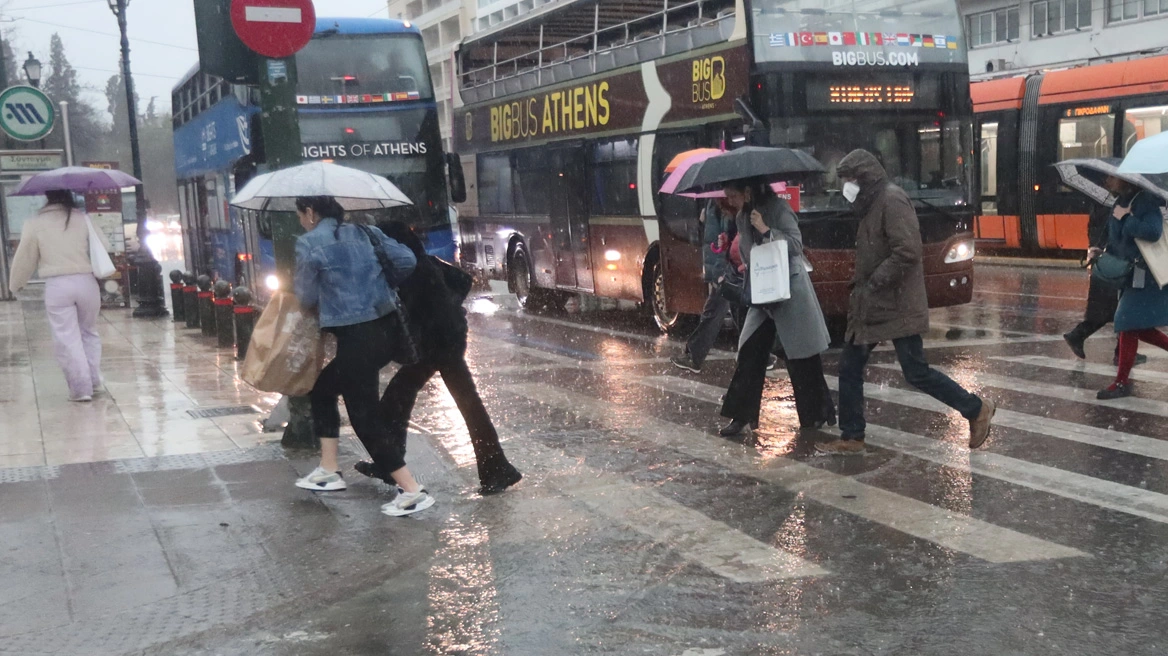The decline in seismic activity in the sea area between Amorgos and Santorini, the primary surplus of €2 billion recorded in the preliminary execution data of the state budget for January, a series of government actions aimed at boosting employment and citizens’ income, and the filming of Christopher Nolan’s movie “Odyssey” in various locations in Greece were some of the topics covered in Prime Minister Kyriakos Mitsotakis’ Sunday Facebook post.
In detail, Mr. Mitsotakis wrote:
“Good morning. I will begin this review with developments concerning seismic activity in the sea area of Anydro, north of Santorini. It appears that the number of tremors has decreased in the past 24 hours, yet scientists continue to monitor the phenomenon around the clock, estimating that seismic activity will take some time to completely subside. We understand that anxiety is high. When the ground shakes, the sense of security is tested. The state is here, standing by its citizens. The Minister of Civil Protection has announced the creation of an emergency evacuation port in Santorini, in collaboration with the Armed Forces, to ensure a safe means of evacuation should it ever be needed. At the same time, beyond the support measures for businesses and workers that we announced last week for our islanders, the Ministry of the Interior is proceeding with an emergency grant of €850,000 to the municipalities of Thira, Amorgos, Anafi, and Ios to address their immediate needs due to the disruption caused by the earthquake.
Moving on to the preliminary state budget execution data, which show that in January we had a primary surplus of €2 billion, while the target was €1.4 billion. The increased surplus is due to better control of expenses and higher-than-expected tax revenues, thanks to measures to reduce tax evasion. I hasten to emphasize once again that the result of this prudent fiscal policy has a social impact. That is, the additional resources have been returned to the citizens in 2024 through tax and contribution reductions, income support, and the Public Investment Program. The increase in tax revenues in 2024 is due both to the interconnection of POS systems with cash registers and to the expansion of the myDATA system for businesses. Last year, electronic transactions reached €67.7 billion from €61.1 billion in 2023, meaning that €6.6 billion in undeclared income was uncovered. In several professional categories, declared incomes increased by 200% to 300% compared to previous years. This reform, which received praise from the European Commission, is about much more than public revenues: it strengthens the sense of fairness and fair competition among businesses while creating conditions for even greater relief for citizens. And I will give two examples here.
First: precisely due to the expansion of fiscal space from limiting tax evasion, we increased the daily food allowance for people with disabilities living in Supported Living Shelters for the first time in 11 years. From €40, it has now risen to €60, meaning each Shelter will receive €1,800 per beneficiary per month instead of €1,200. Also increased—for the first time in 17 years—is the daily allowance for people with severe disabilities living in Boarding Houses (by 44%, reaching €461 per month per beneficiary). All our fellow citizens, especially the most vulnerable among the vulnerable, will have the continuous care of the state.
Second example: from now on, social security contributions for overtime, night work, and holiday work will be significantly reduced, as contributions will be calculated based on the hourly wage corresponding to an eight-hour workday, without the additional increases that apply to these special working conditions. What does this mean in practice? More money in the pockets of workers and businesses. It is very important that workers are paid for their actual working time while ensuring that all businesses operate legally in an environment of fair competition. This is another step that provides relief to our fellow citizens who work demanding hours, strengthens businesses, and protects healthy competition.
Boosting employment and increasing workers’ incomes are two of the government’s main priorities, and we will not stop our efforts to achieve even better results. This is the goal of the successive programs of the Ministry of Labor and the Public Employment Service (DYPA) to subsidize businesses for job creation, train and retrain the unemployed—400,000 people have received training since 2019—as well as the Career Days that bring workers and employers together. Now, we are taking another step with a new pilot program announced a few days ago, targeting unemployed individuals registered in the digital registry of DYPA in seven regions of the country (Rhodes, Kastoria, Achaia, Serres, Perama, Keratsini-Drapetsona, and Salamina). It has four pillars: first, subsidizing businesses to create 7,000 full-time jobs; second, theoretical training for 22,500 unemployed individuals in high-demand fields (green and digital skills); third, a grant of €14,800 for 850 unemployed individuals to start their own business; and fourth, free advisory services for entrepreneurial initiatives.
Additionally, the Ministry of Labor and Social Security announced the expansion of the employment program for unemployed individuals aged 55 to 74, creating 6,000 new jobs in municipalities, regions, public law entities, and decentralized administrations. The program has a dual goal: to provide professional reintegration for our fellow citizens who have lost their jobs at an age where finding employment is objectively difficult while helping them complete the necessary time for pension rights. At the same time, it strengthens local government organizations and state agencies with valuable human resources, improving their effectiveness, particularly in citizen services. So far, through DYPA’s program for employing unemployed individuals aged 55 and over, 26,500 people have been hired.
Another program aimed at addressing the housing issue is “Renovate-Rent,” whose second phase application platform has now opened. Compared to the first phase, we have increased the subsidy to 60% of expenses, up to €8,100. I remind you that the condition for inclusion in the program is that the renovated home must be rented out for long-term leasing. Our goal is to utilize more properties that currently remain vacant.
Next topic, our new initiative for the protection of minors and the handling of domestic violence, two areas that require specialized management, constant adaptation, and strengthening of our policies and tools. We are bringing to Parliament a provision – in a bill from the Ministry of Citizen Protection – regarding the carrying of weapons, specifically prohibitions and strict conditions for various categories of knives that have been used by minors as weapons. In 2024, 10,968 cases of juvenile delinquency and violence were recorded, with 14,956 minor offenders, an increase of 40.81% and 43.80% respectively compared to 2023. This does not necessarily mean that violence has increased, but reflects the greater mobilization of the Hellenic Police and state agencies. I remind you that we are already implementing targeted actions, such as light policing patrols by young officers in areas frequented by children where incidents of violence or delinquency have been recorded. At the same time, we are providing citizens, parents, and the children themselves with two new tools for immediate communication and reporting of incidents: the 24-hour phone line 10201 and the SAFE.YOUth application. Each complaint is managed by specialized staff from the Juvenile Protection Sub-Directorate of Attica, while the app also provides the ability to use an emergency button for immediate intervention.
I move on to the signing of the contract for the leasing of 9,000 sq. m. of building facilities at the Port of Thessaloniki, where the Thessaloniki Court of Appeal will be relocated after the necessary adaptation work is done. The reconstruction of the current Thessaloniki Judicial Building, amounting to 79 million euros, is part of our plan for the judicial buildings of Central Macedonia, which also includes the new Judicial Buildings of Edessa, Serres, and Kilkis, with a total budget of 120 million euros. And these are not the only ones. A few days ago, I visited the under-construction judicial building in Piraeus, which will be the most modern judicial building in the country, covering the needs not only of the city of Piraeus but also all municipalities along the coastal front, whose judicial jurisdiction – as per the new judicial map – now passes to Piraeus.
For the first time in the history of Greek Justice, a large-scale building program, with a total budget of 550 million euros, is underway for the upgrading and modernization of existing judicial buildings and the construction of new ones, funded by the Recovery and Resilience Fund, the NSRF, and national resources. Justice must be administered in dignified conditions that confer prestige and respect to its operation. In addition to the infrastructure interventions, we are also implementing projects with a budget of 220 million euros for the digital upgrading of Justice (digitization of files, trials via videoconference, electronic case files, etc.). Equally important is the institutional modernization, with amendments to the Codes, the reform of Inheritance Law, changes to Administrative Litigation, and many other reforms that will contribute to speeding up the administration of Justice.
To return to Thessaloniki, I had the opportunity last Wednesday to see up close the progress of works on two major projects, the Flyover – 20% already completed – and the Thessaloniki University Pediatric Hospital, one of the three state-of-the-art hospitals being built in the country with a donation from the Stavros Niarchos Foundation. Delivery time is 2027 (May and January respectively). Citizens will see the results of our work in practice because every commitment we make, we see through to completion. We continue vigorously and will be judged on this in 2027, as we should: by the citizens themselves.
Another of our commitments concerned the unique School of Marble Craft in our country, located in Panormos, Tinos. We had committed to protect and upgrade it, and that is what we are doing. We established its transformation into a Higher School from its previous unranked status, and for the first time, its graduates obtain professional rights. The salaries of the staff and all operating expenses of the School are now covered by the Ministry of Culture’s budget. At the same time, the construction of the School’s building facilities and the complete renewal of its equipment is progressing rapidly, with 13,500,000 euros from the Recovery Fund. This is how we are preparing the next generation of marble sculptors to continue Greece’s and Tinos’ great tradition in the art of marble, which dates back to antiquity.
Speaking of the arts, with a bill from the Ministry of Culture, we are strengthening the regulatory framework for combating online piracy, a phenomenon that has grown and deprives income from artistic creators and the creative industry of audiovisual production. Thus, the system of dynamic live blocking is being updated and strengthened in terms of its scope and application process, to respond to modern forms of piracy, especially those targeting audiovisual works, while the reaction framework of competent authorities such as EETT and intermediary providers is becoming stricter, with shorter timeframes than the current ones. The cost of non-compliance will now be disproportionate compared to the very competitive offer packages available in the market for the legal use of such content, and I believe that we will make a significant step in this area toward upholding the law, which will greatly help the domestic creative and audiovisual industry. Administrative fines – depending on the case – will range from 750 euros to 5,000 euros, and in the case of recurrence, the amounts will double. Additionally, access to protected content will be cut off within 30 minutes. With this legislative initiative, we protect the people behind the works. The creators, the artists, the professionals who dedicate time, talent, and passion. Intellectual property is not just a legal issue. It is the hard work and inspiration of thousands of people who deserve to be fairly compensated for their work.
I’ll conclude with “Odyssey,” the new film by the multi-award-winning Christopher Nolan, starring Matt Damon and featuring a cast with many big names from Hollywood. Scenes from the movie will be shot in various locations around Greece, which have already been selected. This is yet another international film production that will strengthen our country’s position as a top global destination for such productions. Since 2019, initially with E.K.O.M.E. and then with the new agency Hellenic Film and Audiovisual Center – Creative Greece, we have invested about 140 million euros in 211 projects (film, television, animation, documentaries). Half of this was directed to international productions, and the remaining funds supported domestic artistic, film, and television production. Along with the university Performing Arts School that we are working to pass into law, I believe that no previous government has supported the cultural sector in such a substantial institutional and financial way.
Thank you again today for the time you’ve dedicated to this review. Have a great Sunday!
Ask me anything
Explore related questions





